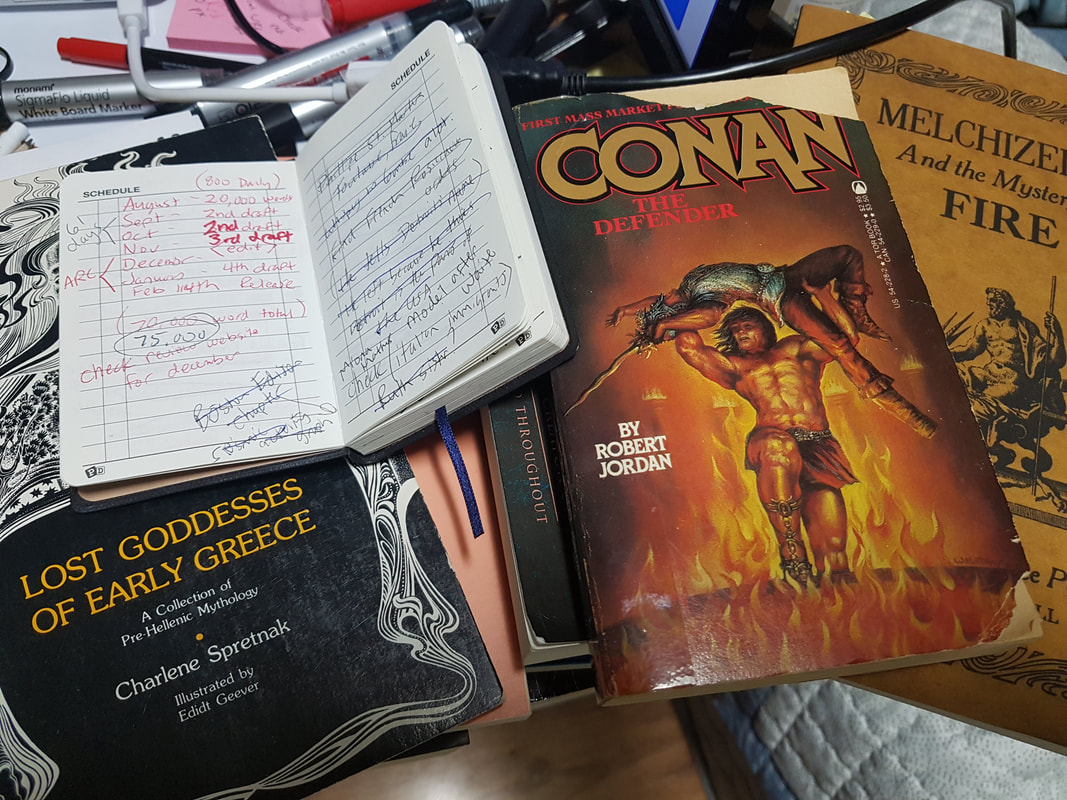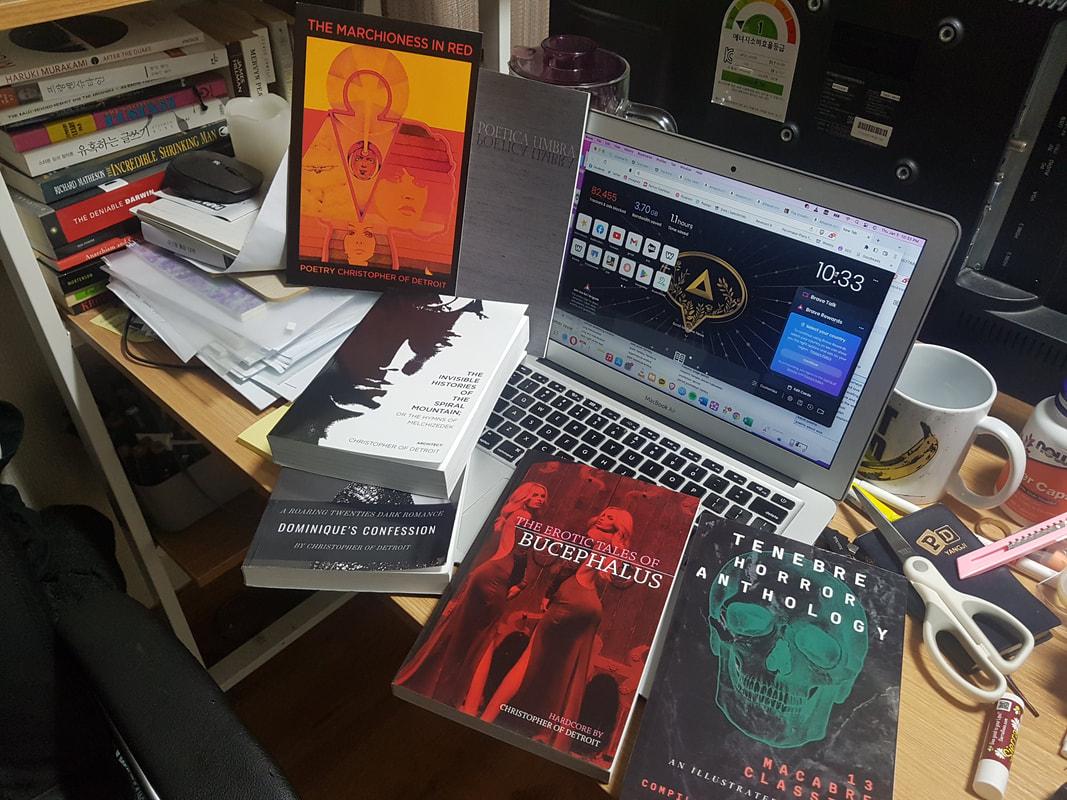|
People often ask me this question. It’s difficult to distill all my passions into a conversation soundbite, so I’m going to articulate them in this blog post.
Firstly, I’m most passionate about reading, writing, and book arts. I have a background in art. From time to time, I enjoy drawing, painting, collage, and found-object sculpture. I adore creation in all its forms. I love to cook, listen to music, watch films, dance, travel, et cetera. But I enjoy these interests at a deeper level. In conversation, I try to steer it in this direction. Strangely, I rarely discuss my ideas about philosophy, politics, or spirituality because they are too complex for mundane conversations. I never talk about the ideas behind my visual art or poetry; I find these things too personal. I sometimes talk about my writing practice, but it’s difficult to go into detail. When I talk about this subject, I feel like I bore people. It is a challenge to explain all the moving pieces. Some close friends seem interested, but I never know if they are genuinely captivated or if they are merely being good friends. I’m unsure. Anyway, I need to reveal more when I speak in conversations. I’m passionate about my spirituality. I had a decent conversation about magic last night—a topic that’s difficult to approach. People don't know much about the subject, so I feel like I’m leading these conversations. The depth of Rosicrucianism and Taoism makes it difficult to express these ideas to people, but I’m super passionate about both philosophies. It’s enjoyable to talk about topics like these, but the older I get, the more specialized my interests become. It’s difficult because few people are interested in these more esoteric subjects, and even if they are, they often only have an introductory level of knowledge. It’s not their fault. Many of them are younger than me, so I don’t expect them to know much about these deeper topics. I was like that at their age. Even so, I love talking about ideas, potentials, and possibilities. I’d much rather talk about personal evolution more than popular TV shows, movies, or computer games, but that’s what people often defer to in their conversations. I suppose it’s safer than deeper questions about existence or life, about your trials and defeats. I don’t know. I’m passionate about everything that I love. I don’t think people are passionate often. Maybe I’m different this way. For example, when discussing music, I run into some roadblocks. Most people know I love music, but they prefer it at a more superficial level. I like to dig deep and find the hidden gems. I’m also a completist for my knowledge of a topic. Some would see this as a social currency, but I don’t look at it this way. If I speak about it, I want to understand it more thoroughly. I want to know the history more deeply. I want to know the behind-the-scenes. That’s why I love documentaries, interviews, and journals. I’m fascinated by the process. Actually, one of my favorite assignments in college was a “process” exhibition. At a gallery in Portland, we had to show evidence of our thesis development. It was a behind-the-scenes before the finished product was unveiled. I found this rewarding and enlightening. Viewers don’t get to see the detritus or the convoluted process of creation that happens when an artist completes a project. There is a massive base under the water, but they only see the outcome. Someday, I’d like to do a video about my writing process (you can find some more focused ones here), but it takes too much time to edit it all and still continue to write, publish, and market my work. That’s kind of what I find most frustrating about my internet videos. I enjoy thinking about what I will say and I wish I could devote more time to them. I appreciate this method better than trying to articulate my thoughts on the spot during a conversation. It’s just easier, more concise, and more focused. Finally, what topics are you most passionate about? What are your struggles in articulating them in conversation? Post below in the comments. I’d like to know.
0 Comments
Many people ask about the themes in my work. Each book is unique in relation to the others so this is difficult to deliver. I don’t repeat a formula. With that said, some common themes appear in all my novels. Foremost, transformative experience plays an important part in all my stories. My main characters go through a “dark night of the soul.” Through these struggles, they come to some new understanding or state of being. Most times, this is a spiritual awakening or a discovery of magic. I’m quite inspired by the works of Hermann Hesse and Henry Miller, and many of their protagonists struggle with their own psychological dilemmas and existential crises. I’m also captivated by esoteric concepts and mysticism. Most of my stories contain an element of hermetic thought. I’m fascinated with Rosicrucian doctrines and these appear throughout my work. Spiritual alchemy is an essential element in my protagonists’ transformations. These characters go through physical or spiritual initiations that uncover hidden parts of their souls. Many of these initiations reveal the transitory nature of “the moment” (my poetry also addresses this) or some lesson in Platonic anamnesis, the recovery of what we have forgotten. Dream worlds are another key component in my work. In my first novel, The Invisible Histories of the Spiral Mountain, the protagonist’s mind fractures into two viewpoints: one is a more focused awareness of waking life, and the other is an archetypal dream world. My second novel, The Erotic Tales of Bucephalus, takes place inside a nightmarish Detroit hotel where dream logic dictates the flow of the story. My third novel, Dominique’s Confession, has the main character discovering initiatory clues within her dreams. These clues often direct her toward certain decisions and often hint at prophecy. Tragic love stories are central to my plots. I’m interested in how these deep connections with others can transform the main characters. Like real life, many of these connections become frayed or fate drives the lovers apart. I’m obsessed with what’s left of these characters after these relationships. Do these love affairs help or hurt the character? Either way, the connections change them. Eroticism is another aspect examined in my work. Detroit is another major character in my plots. I set all three of my novels in this ruined city, and the element of death and rebirth plays an important part in all my stories. Despite these common themes, I experiment with different genres and plot constructions in each novel. Invisible Histories is part experiential autobiography and part magical realist fable. Bucephalus plays with erotic stereotypes. I tried to craft a poignant story about life and awakening within the traditional confines of the erotic tropes. Dominique’s Confession was a history lesson for me. I learned so much about 1920s Detroit and the once epic glamour of my ruined hometown. Through this epistolary examination of Detroit’s history, I was able to weave a love story alongside the occult conspiracies and the gang warfare of Prohibition. That’s it until next time. If there’s anything else you want to know more about, leave a comment and I’ll try to come up with an answer. |
Author:
|


 RSS Feed
RSS Feed